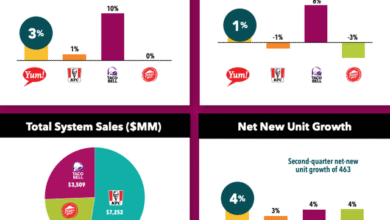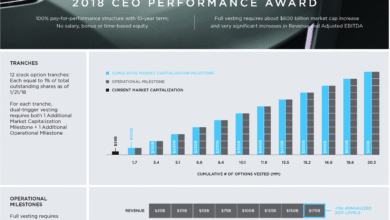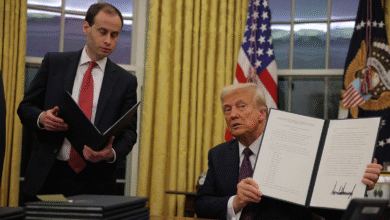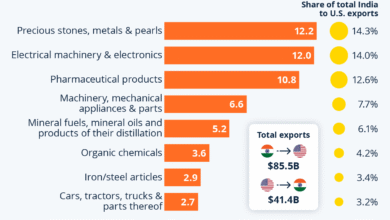Harvard International Student Visa Ruling Blocks Revocation
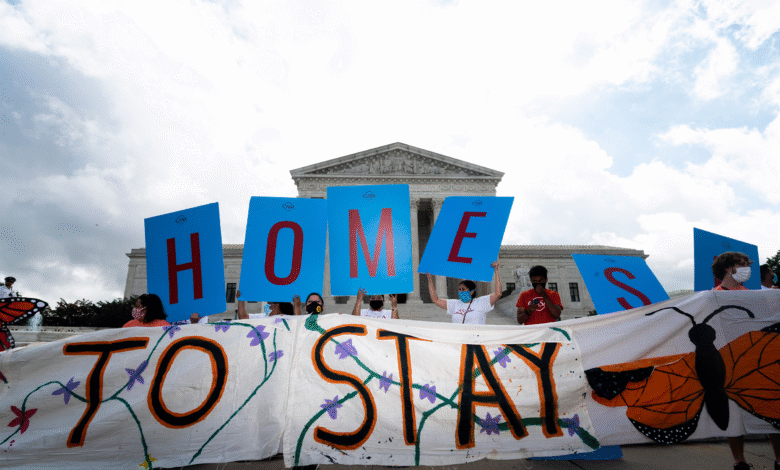
The Harvard international student visa ruling marks a significant moment for higher education and immigration policies in the United States. Recently, a federal judge in Massachusetts prevented the Trump administration from revoking the university’s ability to enroll international students, thereby protecting the rights of those holding F-1 and M-1 visas. This ruling reinforces Harvard’s role in the Student Exchange Visitor Program, which facilitates visa issuance for thousands of overseas scholars. With the potential for an appeal to the First Circuit Court, the ongoing legal battles underscore the administration’s broader strategy regarding visa revocation. As the narrative unfolds, the implications for Harvard international students—along with the concerns raised by alumni and advocacy groups—remain at the forefront of national discourse on immigration and education.
The recent legal decision regarding Harvard’s international student visa policies serves as a crucial intersection of education and immigration law. With the federal court’s ruling effectively blocking the Trump administration’s attempt to rescind authorization for foreign students’ enrollment, it has sparked new discussions about the implications for international scholars. This situation not only concerns the F-1 and M-1 visa holders but also reflects broader issues within the Student and Exchange Visitor Program. As the university navigates this tumultuous landscape, stakeholders are keenly observing how the outcome may impact Harvard’s ability to attract and retain global talent. Amidst these developments, the stakes are high for both the students affected and the future of higher education in the U.S.
The Harvard International Student Visa Ruling: An Overview
In a landmark ruling, U.S. District Judge Allison D. Burroughs issued an injunction that prevents the Trump administration from revoking Harvard University’s ability to enroll international students. This decision, which comes after significant legal battles surrounding F-1 and M-1 visas, reinforces the critical role that international students play within the academic community of the United States. The judge’s directive ensures that all visa holders and applicants are restored to their rightful status, emphasizing the importance of maintaining a diverse and globally engaged academic environment.
The ruling not only safeguards the rights of current and prospective Harvard international students but also sets a precedent for other universities facing similar threats. With the Trump administration’s controversial policies and statements regarding student visas, this decision acts as a crucial form of resistance against efforts that could undermine America’s reputation as a premier destination for higher education. As international students contribute greatly to academic excellence, innovation, and cultural exchange, this ruling represents a substantial victory in protecting those vital contributions.
Implications of the Visa Revocation on International Students
The repercussions of visa revocation attempts extend far beyond individual students; they disrupt entire academic ecosystems. International students on F-1 and M-1 visas are essential not just to their respective institutions but also to the broader landscape of American education and research. The Trump administration’s initiatives, aimed at denying visas to foreign students, pose a threat to the collaborative research efforts that bolster American innovation and economic output. As highlighted by the response from numerous universities and a cohort of Harvard alumni, the proposed actions could lead to a chilling effect on international collaboration and funding, jeopardizing advancements in various fields.
Additionally, the ruling underscores a deeper ideological divide regarding immigration and education policies. Many advocates argue that international students enhance social diversity and contribute significantly to campus communities. By blocking visa revocation efforts, the courts have reaffirmed the essential nature of inclusivity in higher education. This legal backing provides a framework within which universities can operate more freely, fostering an academic environment that is open and accepting, ultimately benefiting all students.
Legal Battles: Massachusetts Courts and the Trump Administration
The ongoing legal struggles between Harvard University and the Trump administration highlight critical tensions within immigration policy. As the Department of Justice asserted its concerns about national security regarding the enrollment of international students, the courts have intervened to prioritize educational integrity over political agendas. The legal framework established by U.S. District Judge Burroughs provides a firm basis on which institutions can advocate for the rights of their international student populations, presenting a strong rebuttal to the administration’s unilateral moves.
Furthermore, the legal proceedings have sparked broader discussions about the role of higher education as a force for good within society. With many universities rallying behind Harvard and submitting amicus briefs, there is a growing consensus within the academic community about the need to safeguard educational freedoms and the integrative role that international students play in enriching the educational experience. The upcoming appeal by the Trump administration to the First Circuit Court of Appeals will undoubtedly shape the landscape of international student policies and influence similar cases across the nation.
The Role of International Students in Academic Innovation
International students have been key to fostering innovation within American academia. They bring diverse perspectives and skills that enhance research and development across various disciplines. With significant contributions in science, technology, engineering, and mathematics (STEM) fields, these students help drive advancements that lead to economic growth and global competitiveness. As the administration attempts to impose restrictions on student visas, educational institutions are reminded of the substantial benefits these individuals provide to American society.
Moreover, the potential impact of hindering the flow of international students is profound. Universities relying heavily on federal funding for research could face setbacks if the talent pool diminishes. By securing their place in the U.S. education system through legal action, institutions emphasize the necessity of maintaining a welcoming environment for all students. They recognize that educational diversity directly translates into innovative practices, fostering an academic culture that thrives on collaboration and shared knowledge.
Public Support and the Defense of Higher Education
The public response to the Trump administration’s visa policies has highlighted a widespread recognition of the importance of protecting higher education from political interference. With high-profile alumni and other universities publicly denouncing the attempt to limit international student enrollment, a strong narrative emerges advocating for the sanctity of academic institutions. The collaborative nature of scientific research, often reliant on international partnerships, would suffer greatly should these policies take effect.
This defense of higher education extends beyond legal battles. It embodies a commitment to academic freedom and diversity. As more individuals and organizations band together to support universities against restrictive visa measures, it reinforces the belief that international students enrich the educational experience and contribute to America’s cultural and intellectual fabric. The collective voices calling for justice illustrate a powerful commitment to maintaining the integrity of the academic landscape in the face of adversity.
Legal Protections for International Students: Current Landscape
The current legal landscape for international students has been shaped significantly by various rulings and lawsuits stemming from the Trump administration’s attempts to revoke visas and alter the Student Exchange Visitor Program. Courts have increasingly recognized the rights of these students to pursue education without undue governmental interference. As evidenced by Judge Burroughs’s ruling, there is a clear judicial acknowledgment of the necessity to ensure that educational exchanges remain a priority in the U.S., affirming the nation’s commitment to its educational values.
Legal protections not only bolster the rights of international students but safeguard the interests of universities, which rely heavily on diverse student populations for their academic vitality. Advocacy groups are working tirelessly to maintain these legal shields, pushing for broader policies that promote inclusion and accessibility in education. As these protections evolve within the judicial system, it becomes increasingly crucial for educational institutions and advocates to remain vigilant in supporting the rights of their international student communities.
Future of the Student Exchange Visitor Program (SEVP)
The future of the Student Exchange Visitor Program (SEVP) hangs in the balance as legal battles unfold over visa revocations and policy changes. The SEVP has traditionally played a pivotal role in facilitating the enrollment of international students in various programs across the United States. With the recent federal injunction against the Trump administration’s efforts, the SEVP remains intact, providing hope for those advocating for the rights of international students.
Continued advocacy and legal challenges will be crucial in ensuring the SEVP’s efficacy and sustainability. As educational institutions prepare for potential appeals and policy shifts, they must remain proactive in protecting their international student populations. This includes engaging in policy discussions, fostering partnerships with global academic entities, and establishing support systems for students navigating the complexities of visa regulations. The collective efforts of educational stakeholders will ultimately define the future success of the SEVP.
Social and Economic Contributions of International Students
The social and economic contributions of international students to American universities extend far beyond mere enrollment figures. These students significantly impact the local economies by contributing to housing, transportation, and various service industries. As large groups of international students settle in campuses across the United States, their spending stimulates economic activity in their communities, which can often lead to job creation and growth in local businesses.
Additionally, the cultural diversity that international students bring promotes a rich learning environment on campuses. This cross-cultural exchange fosters dialogue, understanding, and collaboration among students from differing backgrounds, ultimately preparing all students for a globalized world. As universities advocate for the rights of these students, they recognize the immense value that comes from having a vibrant, multicultural demographic that enhances both academic experiences and social cohesion.
Political Pressures and Higher Education Policy
Political pressures on higher education policy have surged in recent years, particularly regarding immigration and international student enrollment. The ongoing conflict between the Trump administration and institutions like Harvard demonstrates how policy decisions can reverberate throughout the educational landscape. As courts step in to protect the rights of international students, it becomes evident that educational policies must be crafted with a focus on maintaining academic integrity and promoting diversity.
As political climates shift, the higher education sector must remain adaptable in its response to policy changes. Universities are increasingly finding themselves at the forefront of advocacy efforts, pushing back against restrictive measures and lobbying for more inclusive policies. By championing the cause of international students, institutions not only uphold their mission of education but also reinforce their commitment to advancing American values of openness and innovation.
Frequently Asked Questions
What is the Harvard international student visa ruling and its implications for F-1 and M-1 visa holders?
The Harvard international student visa ruling refers to U.S. District Judge Allison D. Burroughs’ decision to block the Trump administration’s attempt to revoke Harvard’s ability to enroll international students. This ruling is significant as it protects F-1 and M-1 visa holders by ensuring their visas remain valid and that the Student and Exchange Visitor Program (SEVP) certification for Harvard is maintained.
How could the Trump administration’s appeal impact Harvard international students?
The Trump administration’s potential appeal against the Harvard international student visa ruling could create uncertainty for international students. If the appeal is successful, it might affect the university’s SEVP certification, resulting in visa revocations or restrictions on enrollment for F-1 and M-1 students.
What are the consequences of the visa revocation threat for Harvard international students?
The threat of visa revocation poses serious consequences for Harvard international students, including loss of legal status, potential deportation, and disruptions in their academic pursuits. The recent ruling helps alleviate these concerns by preventing such visa revocations and maintaining Harvard’s ability to enroll international students.
How has Harvard defended its international student programs against the Trump administration’s actions?
Harvard has vigorously defended its international student programs by filing lawsuits against the Trump administration. The university argues that the actions targeting its Student and Exchange Visitor Program jeopardize not only Harvard but also American innovation and economic growth, as emphasized by various universities and alumni.
What role did alumni and other universities play in the Harvard international student visa ruling case?
Alumni and other universities played a crucial role by providing support for Harvard’s legal battle. Over 12,000 Harvard alumni submitted a brief condemning the Trump administration’s actions, while numerous universities filed an amicus brief arguing that these measures threaten collaborative research and the overall academic environment.
Why is the restoration of Harvard’s SEVP certification important for international students?
The restoration of Harvard’s SEVP certification is vital for international students as it allows the university to legally enroll and support these students on F-1 and M-1 visas. This ensures that international students can continue their education without the fear of visa revocation due to administrative actions.
What are the implications of the judge’s ruling for the future of international education at Harvard?
The judge’s ruling strengthens the position of international education at Harvard by reaffirming the university’s right to enroll international students. It creates a precedent that enhances protections for international students nationwide, particularly amidst shifting immigration policies from the Trump administration.
How did the legal battle over Harvard’s international student visa ruling originate?
The legal battle over Harvard’s international student visa ruling originated when the Trump administration attempted to terminate Harvard’s Student and Exchange Visitor Program certification in May. In response, Harvard filed a lawsuit to protect its international student community and their ability to study in the U.S.
| Key Points |
|---|
| A federal judge in Massachusetts blocked the government’s attempt to revoke Harvard’s ability to enroll international students. |
| U.S. District Judge Allison D. Burroughs issued a preliminary injunction against the Trump administration’s actions. |
| The judge ordered the administration to restore all visa holders and applicants to their previous status within 72 hours. |
| The ruling prevents changes to Harvard’s Student and Exchange Visitor Program certification. |
| The Trump administration is expected to appeal this ruling to the First Circuit Court of Appeals. |
| Harvard responded to a proclamation by Trump aimed at denying visas to foreign students attending Ivy League universities by suing the government. |
| Attorney for Harvard accused the administration of targeting the university and using international students for political leverage. |
| The Department of Justice expressed concerns over national security regarding the vetting of international students. |
| A coalition of universities and over 12,000 Harvard alumni support Harvard and criticize the administration’s actions. |
Summary
The Harvard international student visa ruling by U.S. District Judge Allison D. Burroughs reaffirms the university’s ability to enroll international students amid government attempts to revoke it. This pivotal decision not only protects the rights of thousands of F-1 and M-1 visa holders but also highlights the significant role that international students play in the U.S. education system and economy. As appeals are anticipated from the Trump administration, the implications of this ruling could extend well beyond Harvard, influencing policies regarding international student education across the nation.

